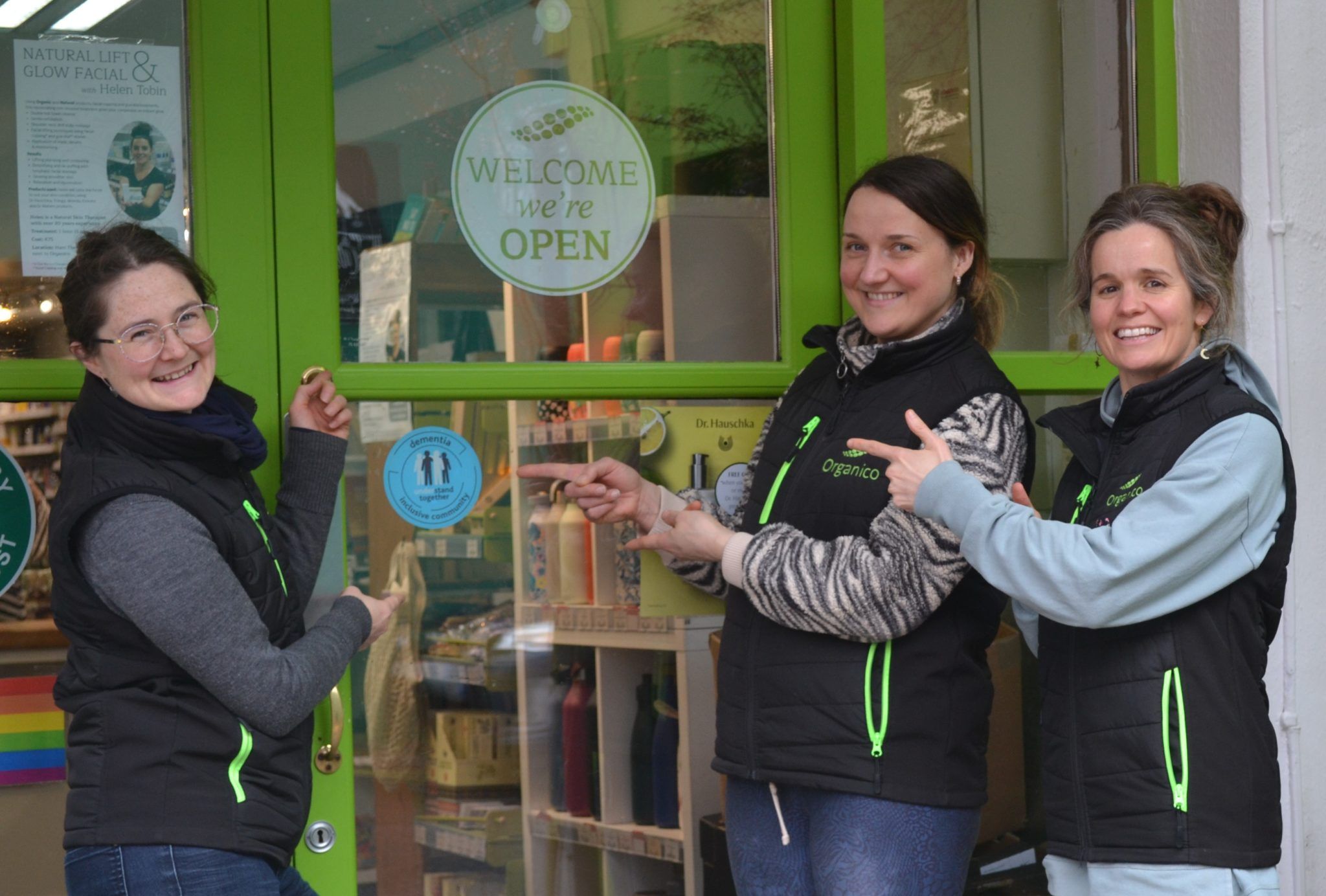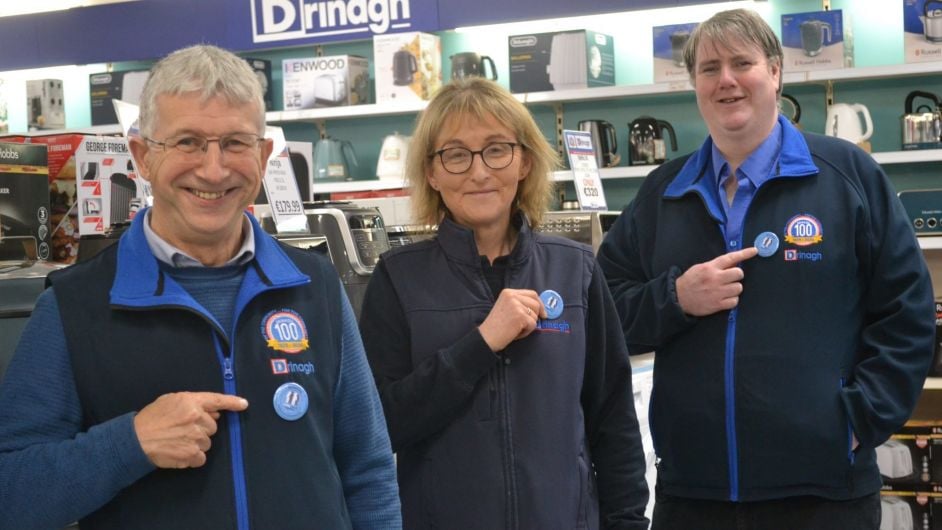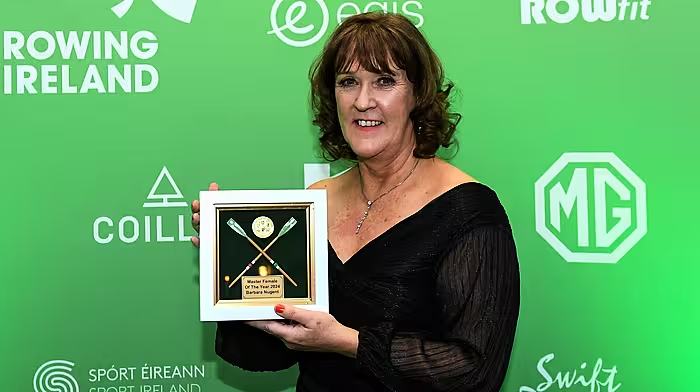Services, businesses, and community groups in the town of Bantry are setting up a new alliance to make the town a dementia-inclusive community, writes CAMMY HARLEY
BANTRY has once again shown its strong community links by getting together to support those in the community who may need them.
Dementia awareness training was held for businesses and staff over the past few months in the town, and a recent meeting at the Maritime Hotel brought together representatives from the gardaí, fire brigade, Cork County Council, Bantry Library, community groups, churches, schools and health services to discuss what each part of the community can do to achieve a Dementia Alliance in Bantry.
The ideas that were conceived at the meeting will now be formed into a plan to create a dementia-inclusive community. The Dementia Alliance will include people and groups from across all parts of the community in Bantry and the surrounding area to share ideas and learning.
David O’Brien, co-chair of Age Friendly Bantry said: ‘A lot of work has already been done, particularly by local businesses and through the establishment of the monthly Memory Café. The next step is to work with every part of the community to identify the small steps that we all can take. Together, these steps will help people living with dementia to remain connected to all parts of community life in the area.’
Ger Reaney, co-chair of Age Friendly Bantry, said Age Friendly Bantry was first established in December 2020, with the aim of making Bantry ‘a great place to grow old. The group subsequently became interested in dementia as they began to appreciate the growing numbers living with the condition, nationally and locally.’
The first public dementia information evening was held in May 2022 and since then Age Friendly Bantry has provided free dementia awareness training to staff in many businesses and services in Bantry.
Bantry Memory Café commenced in the Maritime Hotel and provides a welcoming space for anyone with memory loss, or cognitive impairment, to meet others with similar experiences, their families and friends, as well as interested healthcare professionals.
Ger said: ‘A key part of the approach in Bantry has been to learn from other communities with dementia-inclusive groups in Wexford, Tralee, North Cork and south Tipperary. The work has also been supported by the National Dementia Office and the national Understand Together campaign. The aim over the next few years is to be progressively moving towards a dementia-inclusive community, where the stigma around dementia is removed and where people living with this condition are encouraged and supported to fully participate in the social, cultural, and economic life of their community.’
Over the past year, dementia awareness training, arranged by Age Friendly Bantry, has helped staff in businesses throughout Bantry to increase their knowledge of dementia and of the difficulties faced by the growing numbers of people who are living with dementia in the community. The training was delivered over two 90-minute sessions and was facilitated by Sarah Cairns and Vanessa Bradbury, both of whom have extensive knowledge and experience of working with people who are living with dementia.
More than 25 businesses and services in Bantry have participated, to date, in the free training with the aim of supporting staff working in retail shops and services, to better communicate with and help people living with dementia.
Businesses and services where more than half of their staff attended the awareness training were presented with the National Inclusive Communities toolkit from Fiona Foley, National Dementia Office, HSE at a public information evening in Maritime Hotel last October.
Evie Finlay, chair of Age Friendly dementia group said: ‘It has been great to see local businesses in Bantry so supportive of efforts to better include people with dementia in the community. Staff who are aware of dementia, and who are willing to take a little extra time, make it much easier for people living with dementia to go about their business. We are looking forward to other parts of the community participating in a Dementia Alliance to support people living with dementia to remain involved in sports and voluntary groups, cultural activities and churches in the Bantry area.’
Rachel Dare from Organico said: ‘We found the training helpful and would highly recommend other businesses make use of the course, to help make Bantry even more inclusive. Awareness and training helps us understand customers, and to support them. We also think about our own retail design – we are interested in being dementia-inclusive, but see that by being dementia-inclusive, we can also support all our customers who benefit from clearer layout and signposting.’
 Staff at Organico showing the Inclusive Communities symbol which people with dementia say reassures them that the business is dementia aware.
Staff at Organico showing the Inclusive Communities symbol which people with dementia say reassures them that the business is dementia aware.
Helen O’Driscoll from the Cancer Connect office in Bantry said: ‘Dementia awareness, and the communication strategies that came with the training, are a solution to a problem we didn’t realise we had. Previously, we might have been aware that people receiving cancer treatments might have some side effects from medicine, or anxiety, that might impact memory function. The dementia training has given us awareness that dementia might also be having an impact, as well as communication strategies that can be supportive for anyone with memory problems. We talk to dozens of people on the phone every day. We don’t know who might have dementia or memory impairment. But we now always bring dementia awareness into all our calls and in how we give information, ask questions, and interpret responses.’
 Helen O'Driscoll at Cancer Connect completed her training and finds it useful in her line of work.
Helen O'Driscoll at Cancer Connect completed her training and finds it useful in her line of work.
Vincent Cronin from the electrical goods department in Drinagh said he is now more conscious of the need to take time with people in the shop, to relax, go back over things again. ‘Sometimes, if I am not fully sure what they mean, I check if they have a photo of what they are looking for and often they will have one on the phone,’ he said.
Denis Murphy from Bantry Library said that 100% of the staff in Bantry Library have now completed dementia awareness training. ‘Bantry Library recently commenced a Shared Reading Group for people experiencing concentration issues. We are continuing to work with Bantry Day Care Centre and West Cork Arts. In addition, the library recently hosted a talk on brain health by Vanessa Bradbury from the Alzheimers Society of Ireland.
 Denis, Geraldine and Pamela with some of the resources at Bantry Library for people with memory loss and their families.
Denis, Geraldine and Pamela with some of the resources at Bantry Library for people with memory loss and their families.
Work will begin in the autumn on a new edition of Cork County Library’s publication Come Sit A While, which is a collection of dementia-friendly stories, poems, recipes and memories.’
Noel O’Donovan, general manager of the Maritime Hotel believes the dementia awareness training was a real eye opener for all staff. ‘There are not many families in the country who haven’t been affected by dementia in some form and it was great to hear how best to approach and talk to people who may have dementia. Apart from when you may use the training in your workplace setting, it’s also a great insight for understanding people living with dementia, either with family members or in social settings. Here in the Maritime, we are delighted to host the Memory Café on the first Wednesday of every month from 11am to 1pm and welcome anyone affected by dementia to have a cup of tea or coffee and scone and a sing song. This is a wonderful addition and gives other families the opportunity to see how others may be dealing with things. It lets people know they are not alone.’
Tristan Coakley of Coakleys Décor said that in a retail situation, people living with dementia can forget which shop they bought something in and try and return it to another shop.
‘When you consider that someone may have memory loss, that changes your perspective on what is going on. There are simple things we can do to help people such as colour coordination of keys with door colours. What I learned is useful, not just at work but in any part of life, if you are talking to someone who is living with dementia, to remember not to pressure them with too many questions – to give them the answers.’
Steve Ellis from Local Link Transport said that drivers can see what a huge difference that taking time with customers can make in supporting people with dementia.
'In our door-to-door service, our drivers take time to assist passengers with their bags, locking the front door, and getting on to the bus. If everyone has enough time, this can be a positive experience. The drivers can see that by providing a positive, inclusive transport service, people can participate in social events in the community, receive personal and essential care, and improve their wellbeing.
Without community transport to connect individuals to services, independent living quickly becomes very difficult, and even unhealthy. The training helps our drivers understand how dementia can affect different people, and that people with dementia don’t always look frail. It helps drivers stay calm when responding to things like repetitive questions, and they can help passengers without causing distress. Local Link will ensure new drivers have access to the dementia awareness training as soon as possible and are working to make sure that door to door service drivers have enough time for each pick-up and drop off.’
Ger Reaney said: ‘Over the last few months we have been meeting with different people in local community and voluntary groups, businesses, schools, sporting clubs and cultural organisations. There’s already a lot happening, as well as lots of ideas about how we can improve the inclusion of people living with dementia and their families in the future.’
Future plans include classes in dementia awareness at St Goban’s for anyone interested in finding out more about dementia. Volunteers for the West Cork Literary Festival will be trained to be familiar with dementia and how to recognise people who need some extra help and Bantry General Hospital will improve signage to make it easier for patients to find their way around the hospital independently and will also improve signage between the hospital and the Primary Care Centre.
Bantry is one of eight towns in County Cork which is participating in the Age Friendly Programme – the others include Bandon, Kinsale, and Passage West – which supports communities to prepare for the ageing of their population by paying increased attention to the environmental, economic and social factors that influence the health and wellbeing of older adults.
In addition, communities that know more about dementia can make a real difference to those living with the condition.
For further information email Ger Reaney at [email protected].









